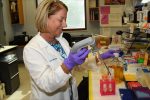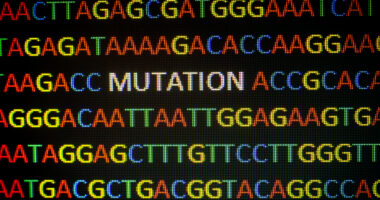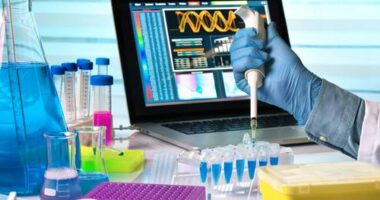Castle Creek, Mayo Clinic Join Forces in Search of Gene Therapies

Castle Creek Biosciences has partnered up with Mayo Clinic to search for gene therapies for classical Ehlers-Danlos syndrome (EDS) and a brittle bone disease called osteogenesis imperfecta (OI).
While Mayo Clinic will carry out the preliminary research to identify and assess gene therapy candidates, the most promising will be clinically developed by Castle Creek at its manufacturing facility in Exton, Pennsylvania.
David Deyle, MD, who is a board-certified medical geneticist and an expert in connective tissue disorders, such as EDS and OI, will lead the research.
“We are honored to be working with Dr. Deyle and his highly regarded research team at Mayo Clinic to identify and evaluate gene therapy candidates that hold promise for treating debilitating, rare connective tissue disorders with high unmet medical needs,” said Matthew Gantz, president and CEO of Castle Creek Biosciences, in a press release.
“We expect this initiative will be the first of multiple Castle Creek strategic collaborations with leading medical research institutions that have the potential to expand our innovative gene therapy discoveries for rare diseases and offer hope to underserved patient communities,” Gantz added.
Classical EDS is usually caused by genetic defects in the COL5A1 or COL5A2 genes. These genes provide instructions for cells to make pieces of type V collagen. Collagen is a key component of the connective tissue that gives structure to joints, skin, blood vessels, and other tissues and organs.
OI is estimated to affect one in 6,600 people in the U.S. People with this condition may have fragile bones and scoliosis (a sideways curvature of the spine), among other symptoms.
Castle Creek plans to use its expertise in rare diseases and gene therapies, having developed new technology based on fibroblasts — which produce collagen and are the most common cells in connective tissue — to develop personalized, targeted and redosable cell-based gene therapy. The approach works by administering the protein of interest directly at the site of action in the body, after genetic modification of fibroblasts with viral vectors.
The company is currently running clinical trials of gene therapy candidates for recessive dystrophic epidermolysis bullosa (FCX-007, dabocemagene autoficel) and severe localized scleroderma (FCX-013).
“We commend Matthew and his leadership team for their strategic insight and guidance that have long-term potential to fuel discovery and advancement of innovative gene therapy candidates and enhance the depth of Castle Creek’s pipeline,” said Jeff Aronin, founder and chairman of Castle Creek.







